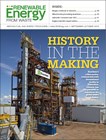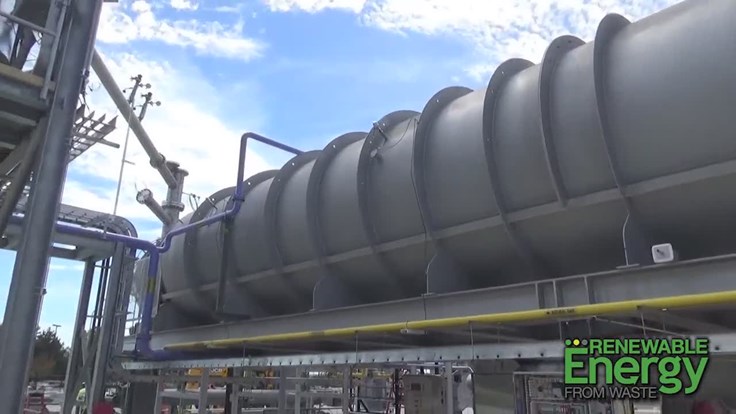An Oct. 8, 2015, letter to shareholders of New Earth Recycling & Renewables plc, Douglas, United Kingdom, from Director MJ Richardson says the company has jettisoned its plans to become an energy producer after the “documented poor technical and financial performance of [the] Avonmouth Energy Recovery Facility (ERF).”
The ERF near Bristol, England, was awarded by a British not-for-profit group in late 2013 with a Green Energy Award for the “Best Renewable Energy Scheme.”
The plant has yielded disappointing results, says Richardson, in part because of its technical performance and also “the steady erosion of the renewable energy subsidy support in the U.K. during the second half of 2014 and the acceleration of these changes in 2015.”
Richardson cites the political climate as a reason for New Earth to continue producing refused-derived fuel (RDF), but says converting it into energy for the grid is no longer feasible. “For the waste industry in the U.K., the economic drivers (such as landfill tax, with the continuing emphasis on reducing waste going to landfill) still have widespread public and government support and, as a consequence, provide a stable platform to continue to operate and develop New Earth’s waste business,” he writes.
“In relation to the energy business, [the] Conservative government has been aggressive in halting subsidies and ending support for environmental projects of all kinds,” he continues. “This led to an increasing realization that the Avonmouth ERF was likely to be the only ERF that New Earth would own and operate and caused a substantial rethink by [New Earth] as to its potential future strategic direction.”
Richardson says New Earth instead is following an approach that is “heavily influenced by the continuing progress of the waste business in producing and exporting RDF to an increasing number of European customers at reasonably competitive disposal costs for the waste business. These off-take arrangements were proving to be more reliable and cost effective than sending RDF to the Avonmouth ERF, as it had struggled to maintain a consistent level of performance in being able to accept RDF produced by New Earth.”
Richardson says there were no buyers to be found for the Avonmouth ERF “because of the poor financial performance and further capital expenditure needed for the ERF and the continuing technology and operating risks.” Thus, “it was decided to sell the energy business to Macquarie Bank, the project senior lender, and an institutional investor, who were between them prepared to refinance the business.”
The sale was more of a handoff, as Richardson later writes that there was “no material cash consideration for the transaction.”
Adds Richardson, “Although the consideration paid was only nominal, an advantage to the continuing New Earth Group was that it was no longer burdened with the debt to Macquarie Bank.”
He concludes, “Ultimately, the development of the energy business at a cost of nearly £60 million with its ambition to provide an integrated waste-to-energy solution for the U.K. market has not worked and has been a very costly and disappointing exercise for [the] shareholders and New Earth. Nevertheless, New Earth has emerged as a stand-alone waste business with the ability to focus purely on its considerable prospects in developing further as a major U.K. exporter of RDF.”
U.K. company’s energy-from-waste plans stall out
New Earth Group hands its energy business to a bank but says it will continue to concentrate on RDF for export.
- October 16, 2015
- REW Staff



